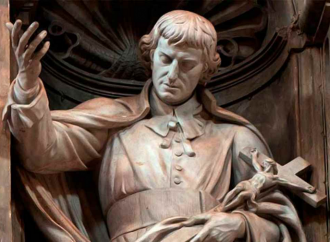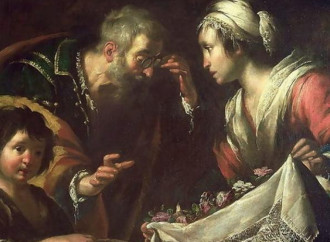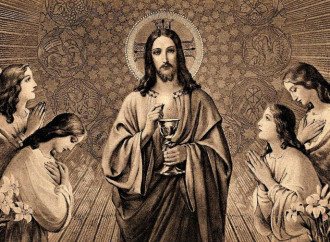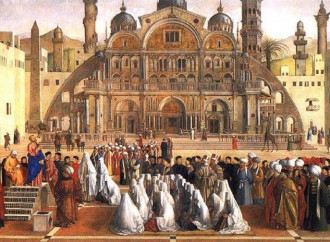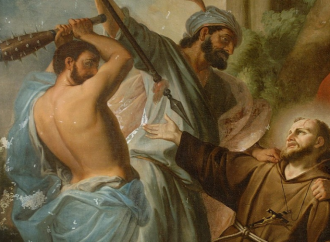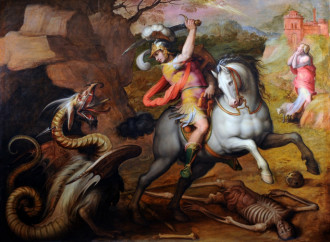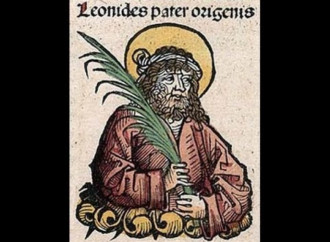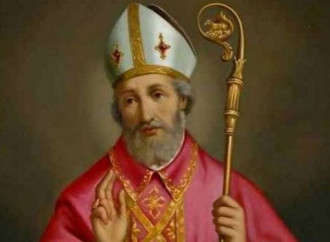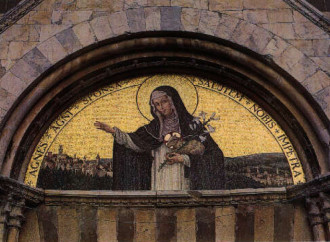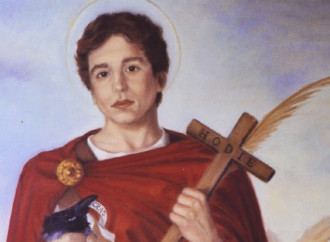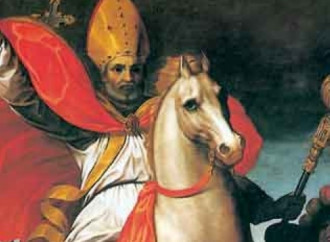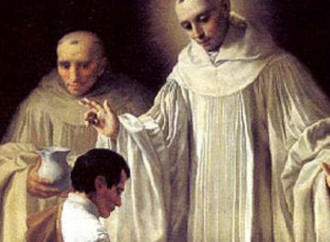Saint Louis-Marie Grignion de Montfort
Saint Pius X not only recommended reading the Treatise on True Devotion to the Blessed Virgin, one of the masterpieces by St. Louis-Marie Grignion de Montfort (1673-1716), but he also granted in writing the Apostolic Blessing “to all those who will read this Treatise”.
Saint Zita
Patroness of Lucca, in Tuscany, Saint Zita (1218-1278) enjoyed a widespread cult long before she was canonized, so much so that her contemporary Dante Alighieri mentioned her in the Divine Comedy.
Saint Paschasius Radbertus
Saint Paschasius Radbertus (c. 790-865) is considered the greatest theologian of the 9th century for his treatise on the real presence of Christ in the Eucharist, as well as for some works on Mary. He intuited the Virgin Mary's Immaculate Conception and wrote that “she was exempt from all original sin”.
Saint Mark
If St. Matthew writes for his fellow Jews (as we gather from his many references to Old Testament quotations revealing that Jesus is the Messiah), St. Mark wrote the second Gospel on the direct appeal of the first Christians of Rome, attracted by the teachings of St. Peter.
Saint Fidelis of Sigmaringen
“If I am killed, I will gladly accept death for the love of Our Lord. I will consider it a great grace”, Saint Fidelis of Sigmaringen (1577-1622) had told his confreres. He was martyred by the Calvinists after having converted many of them to the true faith.
Saint George
Saint George (c. 275 - c. 303) was already the object of an extensive and ancient cult long before the legendary image of his fight with the dragon, symbolizing the intrepid faith that triumphs over evil
Saint Leonidas of Alexandria
The martyrdom of Saint Leonidas of Alexandria (†202), father of the philosopher and theologian Origen, took place during the persecutions ordered by Emperor Septimius Severus.
Saint Anselm of Aosta
Fides quaerens intellectum, “the faith that seeks the intellect”, was the guiding principle of Saint Anselm of Aosta or Canterbury (1033-1109). Called Doctor Magnificus, he devised a famous argument on the existence of God, which has engaged generations of philosophers and theologians.
Saint Agnes of Montepulciano
In 1374 Our Lord revealed to Saint Catherine of Siena that in Paradise she would enjoy a glory equal to that of Saint Agnes of Montepulciano (c. 1268-1317). This fact is indicative of the greatness of this relatively little known mystic.
Saint Expeditus
If St Jude Thaddeus and St Rita of Cascia are particularly invoked for impossible causes, St Expeditus, the most popular of the Martyrs of Melitene, is similarly venerated as the saint of urgent causes par excellence.
Saint Galdino
Among the holy bishops of Milan, Saint Galdino (c. 1096-1176) occupies a prominent place next to two giants, Saint Ambrose and Saint Charles Borromeo. Born into a family of minor nobles, Galdino was archdeacon of the cathedral at the time of Archbishop Oberto da Pirovano.
Saint Robert of Molesme
The principal founder of the Cistercian Order, Saint Robert of Molesme (c. 1029-1111), promoted the return to a simple and austere monastic life, docilely abandoning himself to the action of grace.
